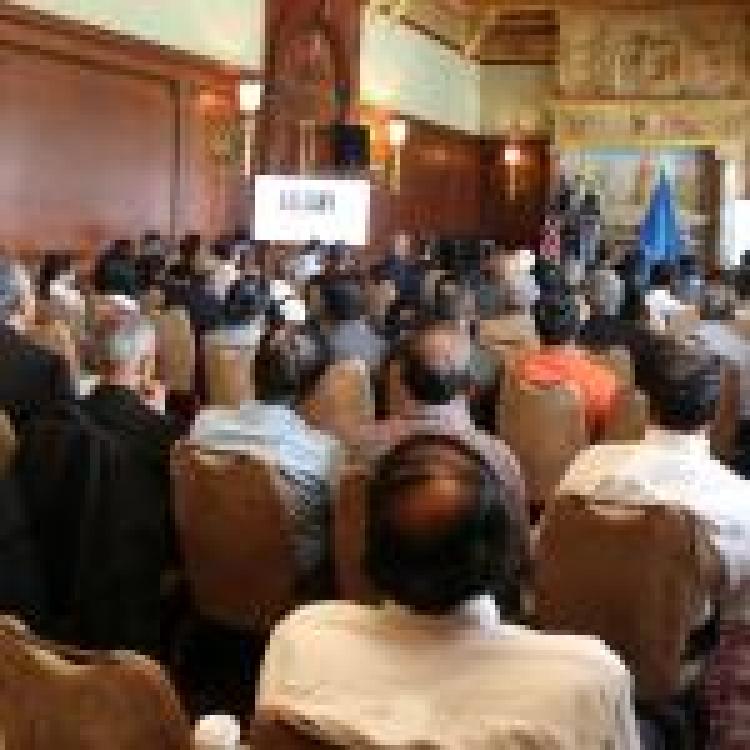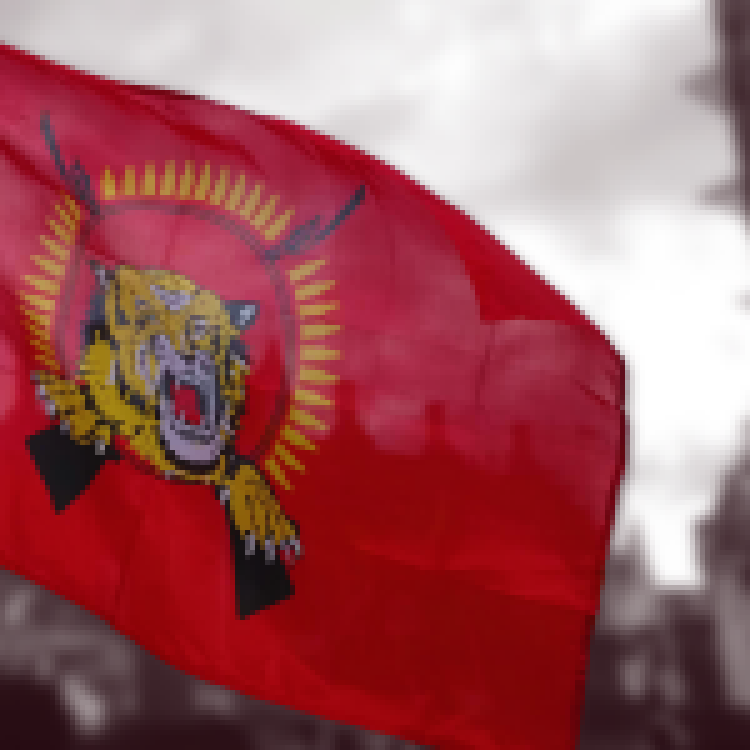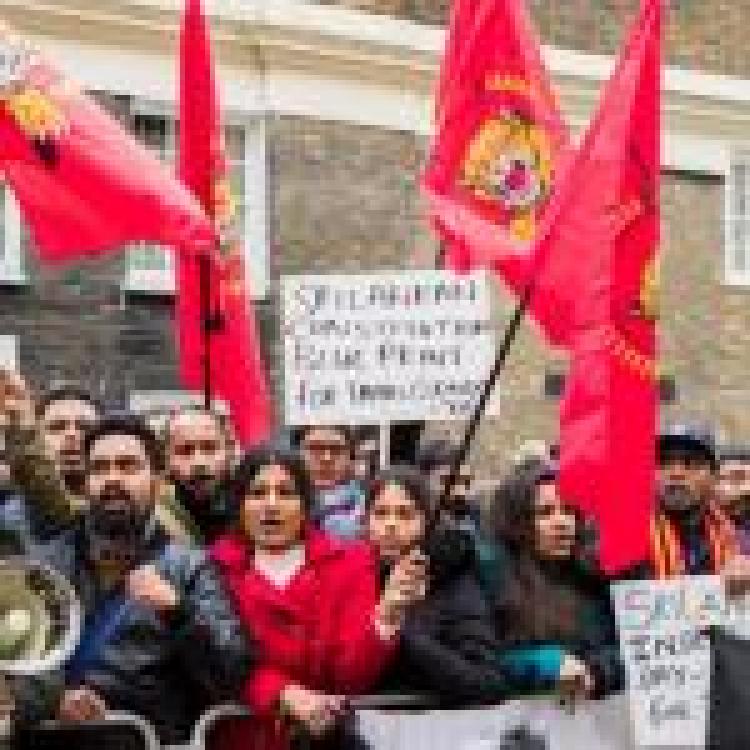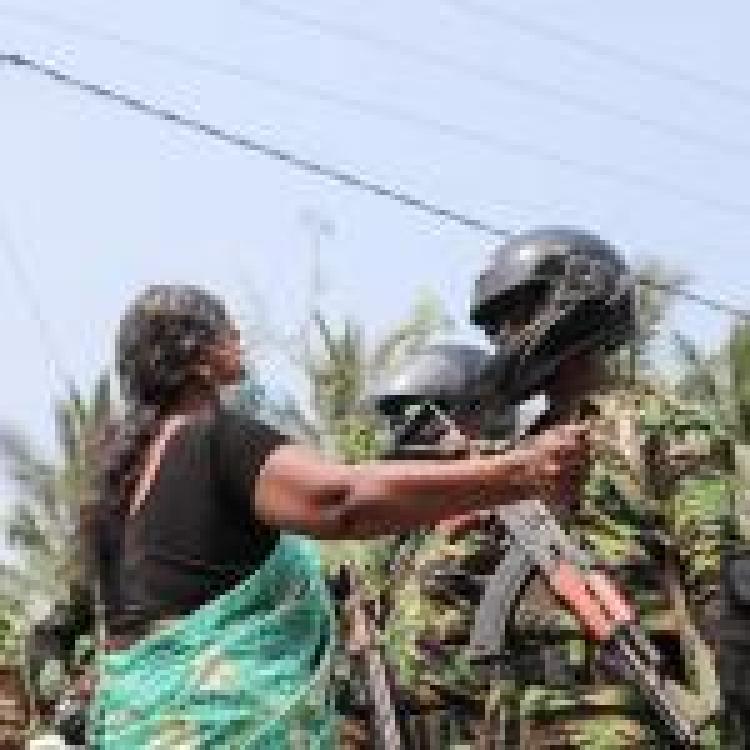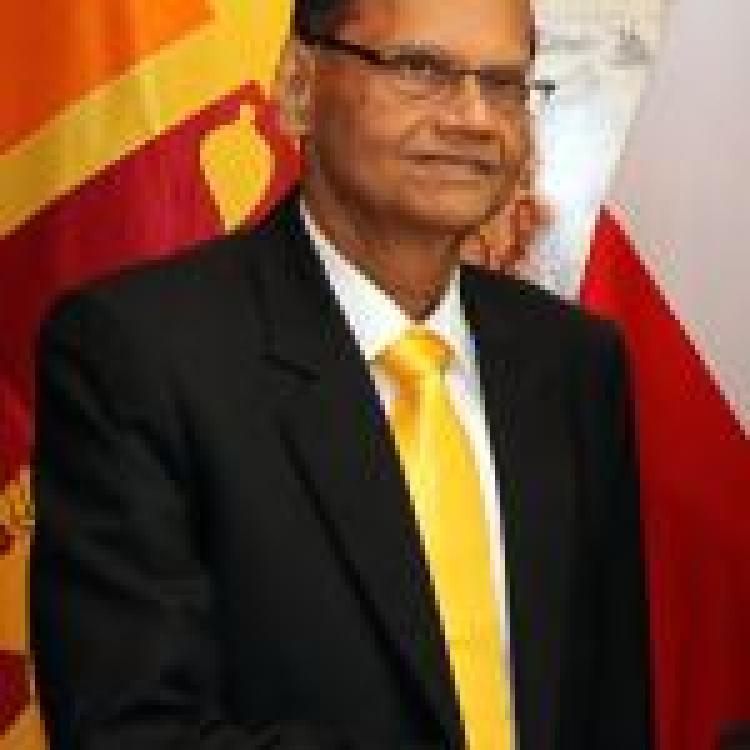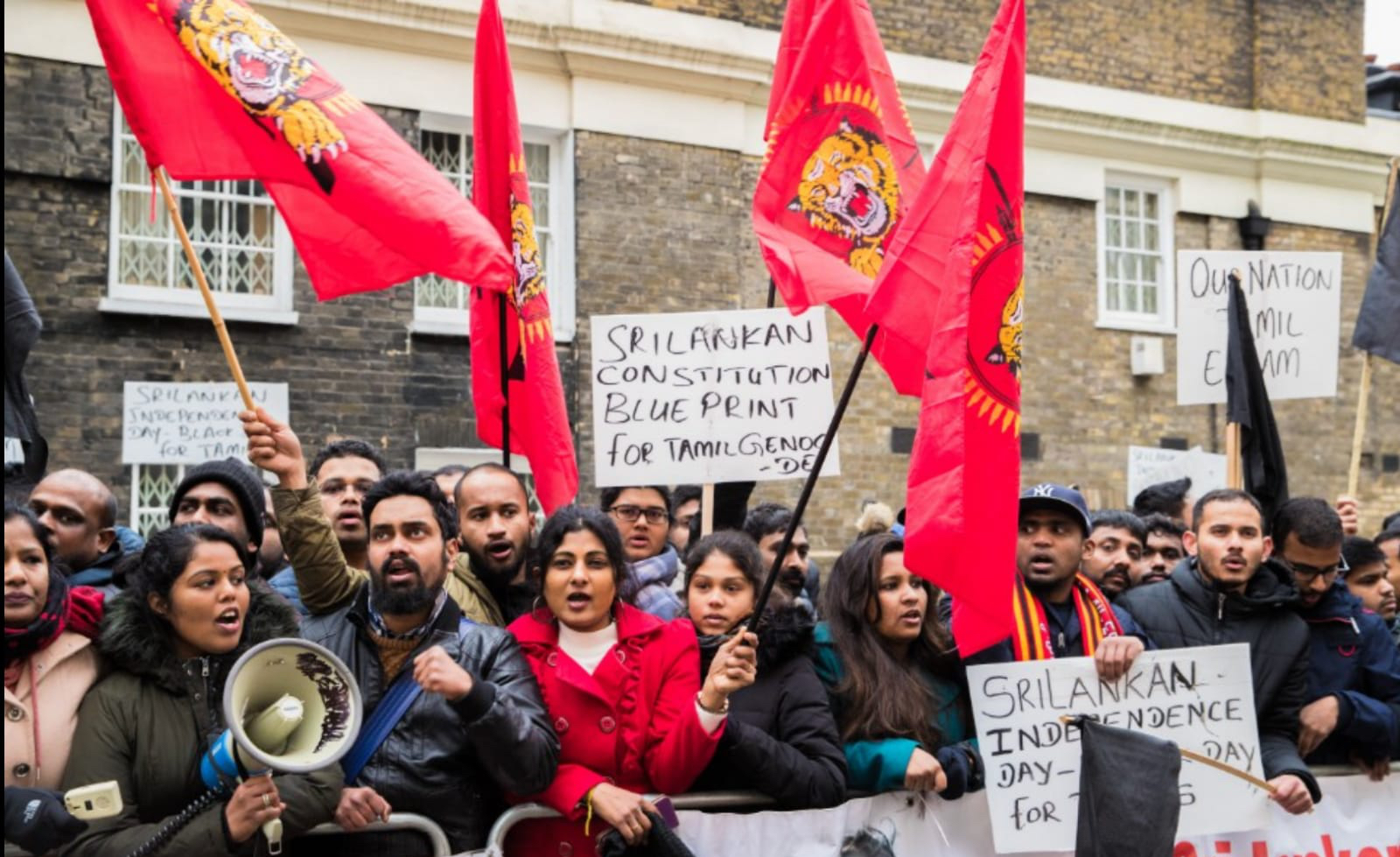
British Tamils protesting on Sri Lanka's Independence Day in February, 2019.
The Sri Lankan government reimposed its ban on several Tamil diaspora organisations last week, as well as hundreds of individuals, claiming they are engaging in “terrorism related activities”.
Through an extraordinary gazette notification signed by the Secretary to the Ministry of Defence, fifteen different organisations and 210 individuals are barred from entering or operating in the country.
Amongst them was the Liberation Tigers of Tamil Eelam (LTTE), which the Sri Lankan government claims “continues to remain active overseas”. The newly extended ban comes just days after India made a similar move, 15 years since the 2009 genocide at Mullivaikkal which saw the defeat of the LTTE and the murder of tens of thousands of Tamil civilians.
Organisations barred include the Tamil Coordinating Committee (TCC), the Transnational Government of Tamil Eelam (TGTE), the National Council of Canadian Tamils (NCCT) and the Tamil Youth Organization (TYO). These organisations continue to function lawfully in many countries around the world, including the United States, United Kingdom and Canada.
The latest announcement came just days before a senior Sri Lankan official told reporters in Colombo that several US Congress members have been “bought over with money” by the Tamil diaspora and called for an extension of a ban on several US-based groups.
Sarath Weerasekera, the Chairman of the Sectoral Oversight Committee on National Security and former Public Security Minister told reporters in Colombo that members of Congress had been “bought” after a resolution was introduced calling for self-determination for Eelam Tamils and a democratic independence referendum.
“There are three LTTE fronts in the US; the Tamil Americans United Political Action Committee, PEARL - People for Equality and Relief in Lanka and Federation of Global Tamils,” he continued. “They are breakaway groups from the LTTE. I have asked that these three organizations be banned in Sri Lanka.”
For years various Sri Lankan regimes have proscribed a range of Tamil diaspora groups and individuals. A ban could make it a criminal offence for Sri Lankan citizens to maintain contact with these organisations or their members and stifles links between these groups and individuals on the island. Despite outcry over the initial listings in 2014 under Mahinda Rajapaksa, successive governments have continued to maintain the proscription even when the Rajapaksas have been out of power.
The full list can be found here.

